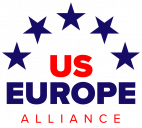“Transfer and theft of American intellectual property by the Chinese government is today the most pressing national security and economic challenge facing our country.”
China continues its pursuit to become the world’s economic hegemon, often disregarding international rules, conventions, and fairness. The list of China’s contentious practices remains extensive, including the persistent theft and coerced transfer of U.S. and European technological, engineering, and medical innovations, which undermine the competitive edge of Western industries.
China’s ruling Communist Party manipulates its currency to make its goods cheaper in export markets, challenging the competitiveness of products from the U.S. and Europe. This practice, coupled with state-backed cyber-intrusions into Western business networks, reflects a preference for unfair tactics over genuine innovation. When Chinese industries falter globally, the government injects massive subsidies, as seen in initiatives like Made in China 2025, which has been largely successful despite significant waste, further distorting global competition. These actions continue to harm U.S. and European workers and entrepreneurs, leading to shrinking manufacturing sectors and reduced economic incentives.
China’s disregard for fairness on the global stage mirrors its domestic suppression of fundamental freedoms. The country has solidified its status as a 21st-century totalitarian state, with an estimated 600 million surveillance cameras now in operation—roughly one camera for every two people. The state’s use of facial recognition technology and the Social Credit System has intensified, severely restricting free speech and assembly. The imprisonment of an estimated 800,000 to 2 million Uyghur Muslims for their religious beliefs remains a stark violation of human rights, drawing condemnation from both sides of the Atlantic.
China’s economic and political influence poses a significant challenge to the transatlantic community. Its pursuit of economic dominance threatens to establish a world order centered on the Chinese Communist Party, rooted in authoritarian control and economic coercion. In 2025, transatlantic relations face additional strain as the Trump administration’s policies, including proposed high tariffs on Chinese imports, have heightened U.S.-China competition. This has led to a divergence in approaches, with the EU, under Ursula von der Leyen’s leadership, aiming to “rebalance” EU-China relations by addressing Beijing’s unfair trade practices while maintaining economic ties. The U.S., however, has adopted a more confrontational stance, with figures like Secretary of State Marco Rubio advocating a hardline policy against China, viewing it as a primary strategic rival. This divergence risks weakening a unified transatlantic response, as China exploits these tensions by positioning itself as a more reliable partner to Europe, particularly to countries like Germany, which remains heavily dependent on Chinese markets despite EU tariffs on Chinese electric vehicles.
China’s admittance into the World Trade Organization has continued to erode the rules-based international order. The transatlantic community, despite shared concerns over China’s practices, struggles to align fully. The EU’s de-risking strategy faces paralysis as member states grapple with economic dependencies on China, while the U.S. pushes for tougher measures like technology export controls and increased defense spending to counter China’s influence. Until China’s leadership respects fair trade rules, intellectual property rights, and the basic human rights of its people, it should be treated by the transatlantic community as a formidable adversarial competitor requiring a coordinated and resolute response.

